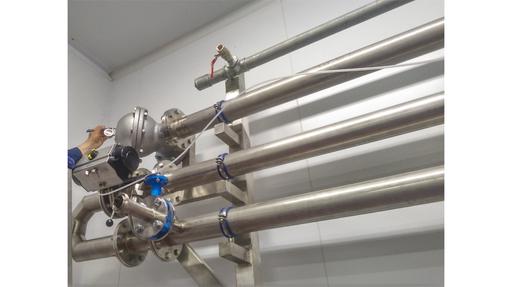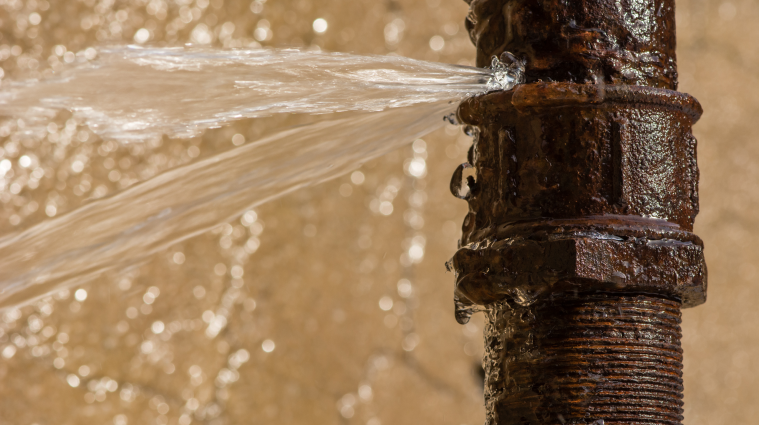Just how do you really feel when it comes to Understanding Water Hammer - Pipelines, Piping?

Introduction
Have you ever before turned off a tap and heard a loud bang or knocking audio originating from your pipes? That disturbing noise, typically referred to as an abrupt thud or clunk, is referred to as water hammer. It's not just an aggravating peculiarity of older homes-- water hammer can occur anywhere, and if left unchecked, it can cause more considerable plumbing issues. In this article, we'll debunk water hammer, discover its reasons, and discuss practical ways to fix and stop it. Think about it as your supreme guide to taming those unruly pipes at last.
What is Water Hammer?
Water hammer is a shockwave of pressure that occurs within your pipelines when water flow quits or changes instructions abruptly. Envision a crowd of runners dashing down a narrow corridor, just to have a door bang closed at the end. The unexpected quit triggers a domino effect, leading to a collision of bodies. In your plumbing system, water imitates those runners, and when it's required to stop instantly, it creates stress waves that travel through the pipes.
The Scientific Research Behind Water Hammer
Water hammer is fundamentally concerning kinetic energy. When water relocates through pipelines, it carries energy. If something disrupts that motion-- like a shutoff closing too quickly-- this momentum transforms into a pressure rise. Pipelines, fittings, and shutoffs experience this spike in stress, typically leading to that banging noise you fear.
Common Causes of Water Hammer
Recognizing the origin of water hammer is the very first step to addressing it.
Unexpected Valve Closure
Swiftly turning off a tap or home appliance can produce an abrupt water flow halt. Dish washers and washing makers, which have automatic shutoffs, are often culprits in creating these unanticipated quits.
Incorrect Pipe Sizing
Pipes that are as well tiny for the amount of water moving through them can enhance the chance of water hammer. Limited space suggests higher velocity, and higher velocity indicates stronger pressure rises.
High Water Stress
Extreme water stress not just wastes water and cash however additionally amplifies the impacts of water hammer. The even more pressure behind the flow, the harder it strikes when forced to stop.
Why is Water Hammer an Issue?
You might ask yourself, "Is water hammer just a sound issue?" It's more than that. While the noise can be aggravating, the genuine difficulty lies under the surface area.
Noisy Water Lines and Home Disturbances
One of the most evident issue is the racket. Hearing beats and bangs every time you do laundry or run the dishwasher can disrupt the tranquility in your home. It may not appear like a big deal in the beginning, however gradually, it can endure your nerves.
Potential Damage to Plumbing System
Water hammer puts stress and anxiety on shutoffs, joints, and installations. Repeated pressure rises can deteriorate links, create leaks, or perhaps lead to pipeline bursts-- a costly and bothersome circumstance nobody wishes to deal with.
Long-Term Damage
Over time, consistent water hammer can cause more regular repair work, premature endure elements, and a shortened lifespan for your plumbing system. Consider it as small stress building up into a larger problem.
Identifying Water Hammer in Your Home
Before you can take care of a trouble, you need to confirm it's there. So, exactly how do you know if you're managing water hammer?
Indications and Appears
Pay attention for knocking or battering noises when turning off taps or running home appliances. If the audio appears ahead from within the wall surfaces, there's a good chance water hammer is to blame.
Carrying Out a Basic Examination
Attempt turning faucets on and off at various speeds. If you notice the sound just occurs with certain components or at specific times, you've gathered hints about where and when water hammer is happening.
Temporary Fixes to Manage Water Hammer
If water hammer is driving you up the wall, there are immediate actions you can take.
Readjusting Water Pressure
If your home's water pressure is set too expensive, think about setting up a pressure regulator or adjusting the existing one. Lowering the pressure can minimize the intensity of those shockwaves.
Protecting Loosened Pipes
Pipelines that aren't appropriately protected can magnify water hammer audios. Including pipeline bands or cushioning materials can aid support them and stop them from rattling against surface areas.
Using Air Chambers or Arrestors
Air chambers are easy gadgets that trap a pocket of air in a vertical pipeline. This air acts as a cushion, taking in the stress rise. If you don't have them, installing water hammer arrestors can achieve a comparable effect.
Long-Term Solutions and Upgrades
If you're searching for more permanent solutions, it may be time to take into consideration some upgrades.
Putting Up Water Hammer Arrestors
These gadgets, made particularly to respond to water hammer, can be positioned near fixtures or appliances. They consist of a piston and chamber that soak up stress adjustments prior to they spread out throughout your system.
Adding Expansion Storage Tanks
An expansion tank connected to your water heater can aid alleviate pressure variations brought on by thermal expansion. By providing water a place to go when warmed, you decrease anxiety on pipes.
Upgrading Pipeline Materials
If you're intending remodellings or dealing with an older home, updating to even more versatile piping materials, like PEX, can help reduce the risk of water hammer. These products can take in shock far better than rigid pipes.
Do it yourself vs. Specialist Assistance
Some house owners enjoy an excellent do it yourself obstacle, while others prefer to leave pipes concerns to the pros.
Establishing Your Comfort Level
If you come in handy, you may be able to deal with basic repairs like installing arrestors or changing pressure. However if you're uncertain or if the problem lingers, there's no embarassment in seeking professional aid.
When to Call a Plumber
If your attempts at taking care of water hammer fall short or if you think hidden issues within your wall surfaces, an accredited plumbing can identify the trouble precisely and suggest enduring solutions.
Preventing Water Hammer from the beginning
The best method to take care of water hammer is to avoid it before it begins.
Designing an Appropriate Pipes Design
If you're constructing a new home or undergoing significant renovations, consult a plumbing regarding creating a format that reduces abrupt water flow adjustments and consists of proper shock-absorbing components.
Routine Maintenance Checks
Just like your cars and truck requires regular solution, so does your plumbing system. Routine checks for leakages, pressure modifications, and weird noises can catch issues early and avoid water hammer from holding.
Prices and Considerations
Investing in protecting against or fixing water hammer can save you cash in the future.
Approximating Expenses
The cost differs relying on the severity of the problem and the selected remedy. Easy fixes like including arrestors or pipe supports could be relatively cost-effective, while extra extensive upgrades might cost even more.
Balancing Prices with Benefits
Bear in mind, the choice-- pipeline damages, leakages, and continuous annoyance-- can be far more costly over time. Think about these solutions as a financial investment in satisfaction and home worth.
Conclusion
Water hammer isn't just a frustrating sound; it's a signal that your plumbing system needs focus. By comprehending what creates it, taking instant activity, and investing in long-lasting options, you can guarantee your pipes stay calm and quiet. Whether you pick an easy do it yourself approach or call a specialist, addressing water hammer is an action toward a much more serene and reputable home.
What Is Water Hammer & How Do You Stop It?
How Water Hammer Is Triggered
Water hammer is often triggered by a valve closing at the end of a pipeline. Tilting disc, swing, and double-door check valves tend to close very quickly, creating high pressure, but water hammer can also be caused by pump failure.
Water is an incompressible liquid, so an impact against a closed valve causes a shock wave that propagates at the speed of sound. It will continue until it hits the next pipe elbow or end of a pipeline.
In homes, water hammer often occurs when a washing machine valve closes after the drum reaches full capacity. Water continues to flow rapidly. It has nowhere to go, so it slams against the side of the pipe, which can bump against other pipes or the frame in the wall.
What Causes Water Hammer?
High water pressure: Excessive pressure can make the issue more pronounced. Quick-closing valves: Appliances like washing machines or dishwashers often have quick-closing valves that create abrupt water flow changes. Loose pipes: Pipes that aren t properly secured can amplify the noise and vibrations. Faulty air chambers: Many plumbing systems include air chambers that absorb shock. If these become waterlogged, they lose effectiveness. How to Stop Water Hammer
Drain the air chamber: Home plumbing systems often have an air chamber to absorb the shock of water when a valve closes. Located inside walls, an air chamber can become waterlogged. This can be fixed by draining your plumbing system, which requires turning off the main water valve and opening the highest faucet in your home. Then drain water from the lowest faucet. The chamber should fill up with air once the water is drained and resolve your water hammer problem. Install a water hammer arrestor: This device has an air-filled cylinder to absorb the impact of abrupt increases in water pressure. Most water hammer arrestors are installed between the shut-off valve and supply line via screw-type connectors. One arrestor should be installed on the hot-water supply line and another on the cold-water supply line. Adjust the water pressure: If the water pressure in your pipes is too high, the steps above will only work temporarily. You can regulate the pressure by adjusting the pressure-reducing valve, which is often located where the main water supply enters your home. To adjust the valve, turn the handle or, if necessary, with a wrench or screwdriver. The setting should be below 50 pounds per square inch (psi). Reducing water pressure also conserves water, saves energy, and can prolong the life of plumbing appliances. Tighten your water supply lines: Sometimes, the U-shaped straps to fasten water pipes to wooden joists or studs aren t tight enough. As a result, pipes can shift and cause noise. You can fix the problem by tightening the screws holding loose pipe straps. Additional straps can be added to improve stability. Pipe straps are usually made of thin metal or plastic, while padded types are available to reduce vibration. Insulate water supply lines: Foam pipe insulation prevents pipes from freezing and can create a cushion for loose pipes. They fit easily over your water supply line and can usually be purchased in 6-foot lengths. Effect of Water Hammer on Plumbing Systems
Water hammer may happen occasionally, but it can cause a sudden plumbing failure or lead to damage over time. It may occur due to excess water pressure in supply lines, or perhaps plumbing pipes have come loose.
Pumps, valves, expansion joints, gasketed joints, and welded joints can be seriously damaged, as can various fittings and connections. Water leaks, ruptured pipes, and property damage can result.
https://villageplumbing.com/blog/what-is-water-hammer-and-how-to-stop-it/

Do you like more info about ? Place a short review further down. We will be delighted to listen to your opinions about this blog entry. We are looking forward that you visit us again before long. Are you aware of another person who is sincerely interested in the topic? Do not hesitate to promote it. Thank you for your time spent reading it.
Book Inspection